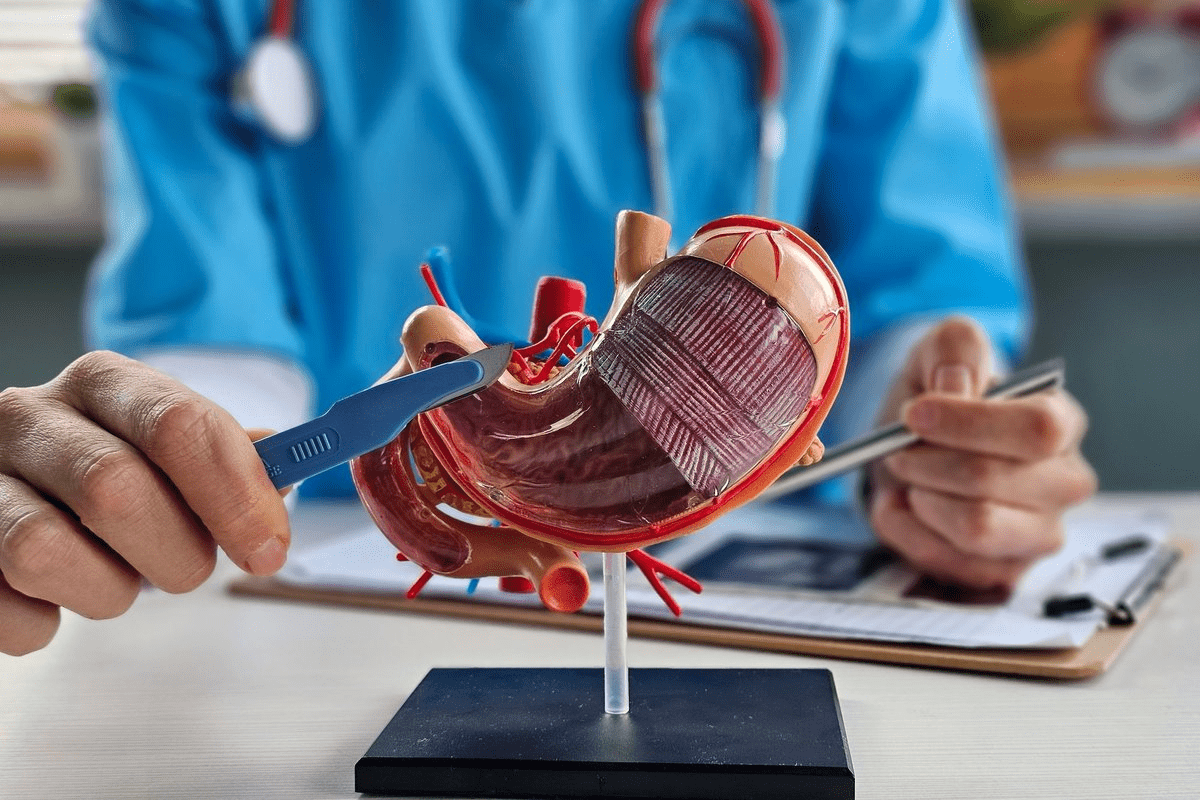Urology treats urinary tract diseases in all genders and male reproductive issues, covering the kidneys, bladder, prostate, urethra, from infections to complex cancers.
Send us all your questions or requests, and our expert team will assist you.

The human body possesses a sophisticated mechanism for processing nutrients and eliminating waste. This biological infrastructure is known as the urinary system. It works tirelessly to filter the blood, remove toxins, and maintain a delicate balance of fluids and electrolytes.
This system is essential for maintaining homeostasis, or internal stability. When this system functions correctly, the body can effectively manage blood pressure and red blood cell production. It acts as a guardian of the body’s chemical environment.
The organs involved in this process work in sequence. From the filtration units in the kidneys to the storage capacity of the bladder, every component plays a specific role. Understanding this system is the first step in appreciating the medical specialty dedicated to its care.

When patients ask about urology, they are referring to the branch of medicine that focuses on the surgical and medical diseases of the urinary tract system and the male reproductive organs. This field encompasses a wide range of conditions affecting the kidneys, adrenal glands, ureters, urinary bladder, and urethra.
It is unique among medical specialties because it combines the management of medical conditions, such as urinary tract infections, with surgical interventions, including the removal of cancers and the correction of congenital abnormalities.
Physicians in this field must possess a broad depth of knowledge regarding internal medicine, pediatrics, gynecology, and other specialties. This integrative approach ensures that patients receive holistic care for complex issues that often span multiple body systems.

The urology meaning extends beyond simple bladder treatment. It represents a comprehensive discipline that addresses quality-of-life issues as well as life-threatening conditions. The scope of practice is vast, covering patients of all ages and genders.
For men, the specialty includes the reproductive system, addressing issues such as fertility, sexual dysfunction, and prostate health. For women, it often overlaps with urogynecology, focusing on urinary incontinence and pelvic floor disorders.
The discipline is constantly evolving with advancements in technology. Modern practice emphasizes minimally invasive techniques, robotic surgery, and laser therapies to improve patient outcomes and reduce recovery times.
The upper urinary tract consists of the kidneys and the ureters. The kidneys are bean-shaped organs located just below the rib cage on either side of the spine. They are the body’s primary filtration units.
Each kidney contains approximately one million filtering units called nephrons. These microscopic structures process the blood to produce urine. The urine then flows down through narrow tubes called ureters into the bladder.
Disorders in this area can be severe. Kidney stones, tumors, and obstructions can block the flow of urine, leading to pain and potential kidney damage. Preserving the function of these organs is a primary goal of the specialty.

The lower urinary tract includes the bladder and the urethra. The bladder is a hollow, muscular organ that acts as a reservoir for urine. It expands as it fills and contracts to expel urine during voiding.
The urethra is the tube that carries urine from the bladder to the outside of the body. The anatomy of the urethra differs significantly between men and women, which influences the conditions they are prone to develop.
Control over urination involves a complex interaction between the bladder muscles, the sphincter muscles, and the nervous system. Disruption in any of these components can lead to incontinence or retention.
This medical specialty also covers the male reproductive system, which is anatomically intertwined with the urinary system. This includes the testes, epididymis, vas deferens, seminal vesicles, prostate, and penis.
The prostate gland is of particular importance due to its tendency to enlarge with age and its cancer susceptibility. It surrounds the urethra just below the bladder and adds fluid to the semen.
Issues with these organs can affect fertility, sexual function, and urination. Specialists in this field are the primary providers for men experiencing reproductive health challenges.
Due to the breadth of the discipline, many physicians choose to subspecialize. Pediatric urology is a distinct subfield dedicated to diagnosing and treating congenital and acquired urologic conditions in children.
Other subspecialties include urologic oncology, which focuses on cancers of the urinary tract, and transplant surgery, which deals with kidney transplantation. Female pelvic medicine focuses on incontinence and prolapse.
Endourology specializes in minimally invasive techniques for treating stones and other conditions of the urinary tract. Neurourology focuses on urinary problems resulting from nervous system disorders.
A specialist in this field, known as a urologist, is trained to handle a wide variety of clinical problems. They act as both internists and surgeons, providing continuity of care from diagnosis through treatment and follow-up.
Their training involves five to six years of residency after medical school. This rigorous education ensures they are proficient in open surgery, laparoscopic procedures, and robotic-assisted operations.
They also perform office-based procedures such as cystoscopy and prostate biopsies. Their role is pivotal in the early detection of cancers and the management of chronic conditions.
Care is delivered in various settings, ranging from large academic medical centers to private community practices. Many specialists work in groups, often known as urology associates, to provide comprehensive coverage and access to diverse expertise.
These group practices often have integrated ancillary services such as radiation therapy centers, pathology labs, and ambulatory surgery centers. This “one-stop shop” model improves patient convenience and care coordination.
Hospital-based practices focus more on acute care, trauma, and complex inpatient surgeries. The setting often dictates the type of resources and technologies available to the patient.
Preventive care is a cornerstone of modern medical practice. In this field, it involves screening for prostate cancer, counseling on stone prevention, and managing lifestyle factors that affect bladder health.
Routine check-ups enable early identification of risk factors. For example, blood in the urine can be an early sign of bladder cancer, which is highly treatable when caught early.
Education is also a key component. Teaching patients about hydration, diet, and pelvic floor exercises can prevent many common urologic issues from developing or worsening.
The field has been a pioneer in adopting medical technology. From the early use of endoscopes to the widespread adoption of robotic surgery, technology drives better patient outcomes.
Lasers are used to break up kidney stones and treat enlarged prostates with minimal bleeding. Advanced imaging techniques like MRI fusion biopsies improve the accuracy of prostate cancer diagnosis.
Telemedicine is also becoming increasingly important, allowing patients to consult with specialists remotely. This expands access to care, particularly for those in rural areas.
Urologic conditions affect a significant portion of the global population. As the population ages, the prevalence of conditions like prostate enlargement and incontinence increases.
In developing nations, the focus may be on treating infectious diseases and congenital anomalies. In developed nations, the focus shifts towards age-related conditions and cancers.
Understanding these demographic trends helps healthcare systems allocate resources effectively. It ensures that the specific needs of different populations are met.
The patient journey often begins with a referral from a primary care physician. Initial consultations involve a thorough history and physical examination.
Diagnostic testing is tailored to the specific complaint. This may involve urine tests, blood work, or imaging studies. Based on the results, a treatment plan is developed.
Communication is key throughout this process. Patients need to understand their condition and the available treatment options to make informed decisions about their care.
Complex cases often require collaboration with other specialists. Nephrologists manage the medical aspects of kidney disease, while oncologists manage chemotherapy for cancers.
Radiation oncologists provide radiation therapy for prostate and bladder cancers. Gynecologists collaborate on complex pelvic floor issues.
This team-based approach ensures that all aspects of a patient’s condition are addressed. It leads to more comprehensive and effective care.
Send us all your questions or requests, and our expert team will assist you.
A urologist treats conditions affecting the urinary tract in both men and women, including the kidneys, bladder, ureters, and urethra, as well as the male reproductive system.
Yes, women see urologists for conditions such as urinary incontinence, urinary tract infections, kidney stones, bladder prolapse, and cancers of the urinary tract.
While some insurance plans require a referral from a primary care doctor, many practices allow patients to schedule appointments directly for specific concerns.
Men should consider seeing a urologist starting around age 40 to 50 to discuss prostate health screening, or earlier if they have a family history of prostate cancer or other urologic issues.
Nephrology focuses on the kidneys’ physiological function and the medical treatment of kidney diseases. In contrast, urology focuses on surgical and structural problems of the urinary tract and the male reproductive system.


Neuroblastoma is a serious cancer that affects nerve cells. It’s a big worry for families,prevent neuroblastomaCancer Childhood Symptoms: Bright Positive Prevention Hope mainly those with



Gastric sleeve surgery, also known as laparoscopic sleeve gastrectomy, is a popular weight loss method. We know that recovering from it can be confusing.Detailed breakdown

Creating effective nutrition plans for groups is a big challenge. It needs a careful, evidence-based approach. We face the issue of meeting different nutritional needs

Thyroidectomy, or thyroid surgery, is a common surgery worldwide. About 150,000 people in the United States have it every year. Knowing how to recover well

Leave your phone number and our medical team will call you back to discuss your healthcare needs and answer all your questions.
Your Comparison List (you must select at least 2 packages)